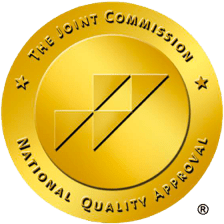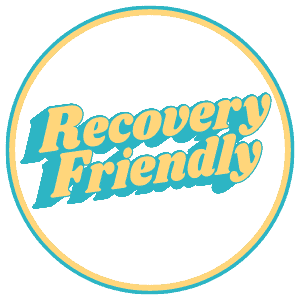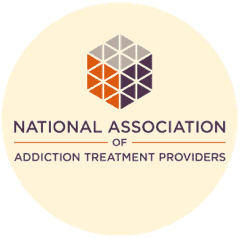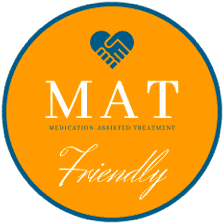Beating alcohol or opioid addiction is never easy, and one of the hardest parts of recovery is cravings. Shortly after getting sober, people with opioid or alcohol dependence will start having intense urges to get high or drink because that is what their brain is craving.
It takes a while for brain chemistry to stabilize after periods of addiction, but there are medications like Vivitrol that can help. Vivitrol is a once-monthly injection that can be used to block the effects of opioids, alleviate drug cravings, and reduce the urge to drink alcohol.
Vivitrol is available by prescription only. If you or a loved one are ready to begin your recovery journey, please speak with one of our qualified admissions counselors in North Carolina to find out if Vivitrol treatment is right for you.
What is Vivitrol (naltrexone for extended-release injectable suspension)?
Vivitrol is a prescription medication containing naltrexone. It is formulated as an intramuscular injection and is approved by the FDA for the treatment of alcohol or opioid dependence after detoxification. The injection is administered every 28 days in the buttocks.
Vivitrol Side Effects
The most common side effect of Vivitrol is injection site reactions. Some people will experience pain, itching, redness, irritation, and slight swelling at the injection site for a couple of days after their injection. Such reactions are normal and usually subside after a few days. However, if you experience a burning sensation, hives, or allergic reaction, contact a healthcare provider immediately.
Other common side effects of Vivitrol include:
- Nausea
- Sleepiness
- Headache
- Dizziness
- Vomiting
- Decreased appetite
- Painful joints
- Muscle cramps
- Cold and flu symptoms
- Difficulty sleeping
- Toothache
How Does Vivitrol Work?
Naltrexone is an opiate antagonist that occupies opioid receptors in the brain without producing euphoric effects like opiate agonists do. It also blocks the effects of opioids like hydrocodone, oxycodone, morphine, heroin, and others.
Vivitrol for Opioid Use Disorder (OUD)
By occupying opioid receptors, Vivitrol can successfully reduce cravings for opioid drugs. And, because people who are taking it know they cannot feel the effects of opioids while they are on the medication, individuals are less likely to relapse.
Vivitrol for Alcohol Use Disorder (AUD)
Even though naltrexone acts on opiate receptors, it can still help treat alcohol dependence. Alcohol cravings are a major obstacle to overcome in recovery, and people who struggle to deal with their cravings often find themselves having another drink. Vivitrol helps normalize brain chemistry in people with alcohol dependence and reduces alcohol cravings.
What is a Vivitrol Treatment Program in North Carolina Like?
By itself, Vivitrol does not cure addiction. A Vivitrol treatment program will include medical detox, behavioral therapy and counseling, monthly injections, and aftercare support services. This integrated, comprehensive approach is known as medication-assisted treatment (MAT).
Detox Comes First
Whether you are struggling with an addiction to alcohol or opioids, you must stop drinking alcohol or detox from opioids fully before starting Vivitrol. Taking Vivitrol too early can result in adverse side effects and worsening withdrawal symptoms. As a result, treatment begins with detox.
Although you can’t start Vivitrol until you’ve detoxed, a drug and alcohol detox center can administer symptom-specific medications to keep you safe and comfortable. Detox may last 5-7 depending on your medical necessity. People who experience severe withdrawal symptoms may require around-the-clock monitoring and support.
Monthly Injections
After 3-10 days of no drinking and/or 7-10 days without opioids, qualified patients may receive their first Vivitrol shot. The Vivitrol shot can only be administered by a licensed healthcare provider and it must be given in the office. Your doctor will tell you about the medication, its side effects, and answer any questions you may have.
Vivitrol is injected into the buttocks or glute muscles. After 28-30 days, you will return for your next injection and continue to do so until your doctor says you are ready to stop taking the medication.
Comprehensive Treatment
For Vivitrol treatment to be effective, the medication must be combined with substance abuse treatments like behavioral therapy and counseling. Vivitrol alleviates cravings while you can focus on different aspects of your recovery such as counseling sessions, support meetings, or the 12 steps.
Vivitrol treatment in North Carolina will be tailored to meet your unique needs. Treatment will involve a comprehensive substance abuse and psychiatric evaluation to diagnose any mental health conditions, assess your goals, and develop a personalized treatment plan for you.
You may participate in treatment across various levels of care, including:
- Inpatient rehab
- Intensive outpatient program (IOP)
- Outpatient program (OP)
- Aftercare
Aftercare Support and Medication Management
Addiction recovery is a long-term, ongoing process. Before treatment ends, you will work with your counselor and case manager to develop an aftercare plan. Aftercare may involve:
- Counseling
- Sober living
- 12-Step meetings
- Alumni program
- Recovery coaching
- Support groups
If you are taking Vivitrol, aftercare will also involve medication management. This means you will have to provide urine samples for randomized drug testing and check in with your doctor on a monthly basis to continue receiving your injections.
What Happens When I’m Ready to Stop Taking Vivitrol?
It’s important that you continue showing up for your injection appointments so you don’t skip a dose or go too long between doses. Failing to adhere to your injection schedule can result in relapse. However, there may come a point when you and your doctor agree that you are ready to stop taking the medication.
Fortunately, it is very easy to stop taking Vivitrol. Naltrexone is not habit-forming so you won’t experience withdrawal when you stop taking it.
After stopping Vivitrol, you should continue with the rest of your aftercare so you can maintain your recovery.
Start Vivitrol Treatment in North Carolina Today
Vivitrol combined with comprehensive substance abuse treatment has been proven to reduce alcohol abuse in people with alcohol dependence and reduce the risk of relapse in people with opioid use disorder.
At Next Step Recovery, we understand that addiction is a complex disease with physical and psychological components. That’s why we outline all treatment options for our clients and offer the resources needed to overcome opioid addiction, treat alcohol addiction, illicit opiate use, methadone treatment, and more. With the use of evidence-based therapies alongside MAT drugs such as Vivitrol, you will receive a comprehensive treatment plan tailored to your unique needs and goals.
If you or a loved one are interested in starting Vivitrol treatment in North Carolina or would like to learn about your other treatment options, please contact us today.









